Which of the following compound will give four monochloro (structural) product on monochlorination.
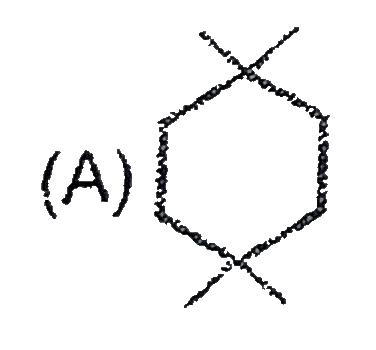
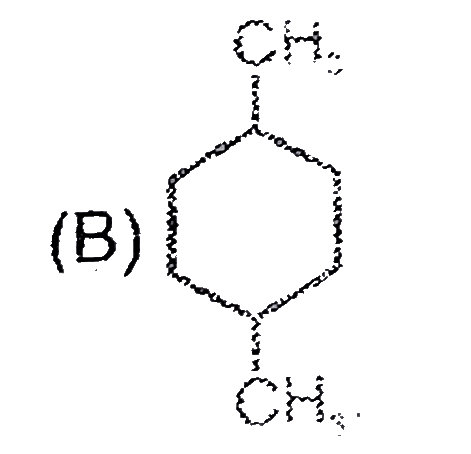
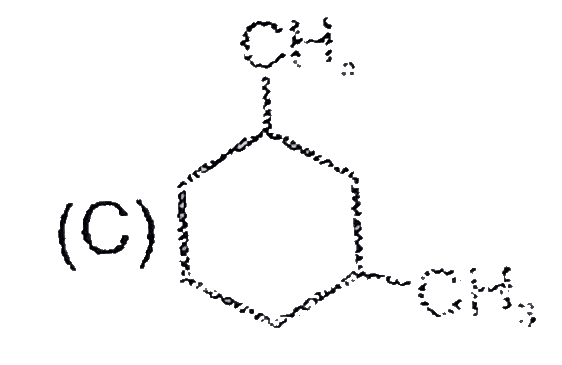
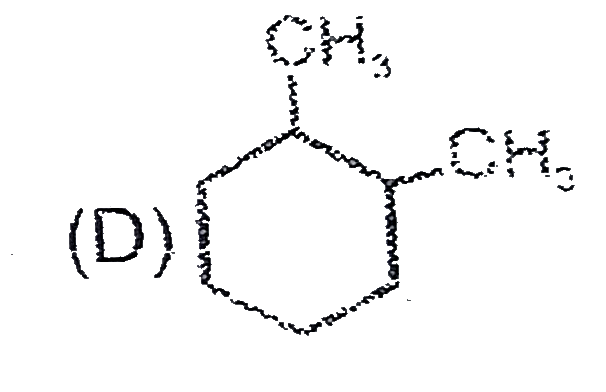
The correct Answer is:D
To determine which compound will give four monochloro (structural) products upon monochlorination, we need to analyze the types of hydrogen atoms present in each compound. The number of different types of hydrogen atoms will indicate how many distinct monochloro products can be formed.
1. Identify the Compounds: We have four compounds to analyze. Let's denote them as Compound A, Compound B, Compound C, and Compound D.
2. Analyze Compound A:
- Count the hydrogen atoms and identify their types.
- In Compound A, there are two types of hydrogen atoms.
- Therefore, monochlorination will yield 2 structural products.
3. Analyze Compound B:
- Count the hydrogen atoms and identify their types.
- In Compound B, similar to Compound A, there are also two types of hydrogen atoms.
- Therefore, monochlorination will yield 2 structural products.
4. Analyze Compound C:
- Count the hydrogen atoms and identify their types.
- In Compound C, we find that there are four distinct types of hydrogen atoms.
- Therefore, monochlorination will yield 4 structural products.
5. Analyze Compound D:
- Count the hydrogen atoms and identify their types.
- In Compound D, there are three types of hydrogen atoms.
- Therefore, monochlorination will yield 3 structural products.
6. Conclusion:
- Among the four compounds analyzed, only Compound C produces four distinct monochloro products upon monochlorination.
Final Answer:
The compound that will give four monochloro structural products on monochlorination is Compound C.
- Count the hydrogen atoms and identify their types.
- In Compound A, there are two types of hydrogen atoms.
- Therefore, monochlorination will yield 2 structural products.
- Count the hydrogen atoms and identify their types.
- In Compound B, similar to Compound A, there are also two types of hydrogen atoms.
- Therefore, monochlorination will yield 2 structural products.
- Count the hydrogen atoms and identify their types.
- In Compound C, we find that there are four distinct types of hydrogen atoms.
- Therefore, monochlorination will yield 4 structural products.
- Count the hydrogen atoms and identify their types.
- In Compound D, there are three types of hydrogen atoms.
- Therefore, monochlorination will yield 3 structural products.
- Among the four compounds analyzed, only Compound C produces four distinct monochloro products upon monochlorination.
The compound that will give four monochloro structural products on monochlorination is Compound C.
Topper's Solved these Questions
- STRUCTURAL IDENTIFICATIONBOOK - RESONANCE ENGLISHCHAPTER - STRUCTURAL IDENTIFICATIONEXERCISE - Exercise - 2 (Part-I)
10 Videos
- STRUCTURAL IDENTIFICATIONBOOK - RESONANCE ENGLISHCHAPTER - STRUCTURAL IDENTIFICATIONEXERCISE - Exercise - 2 (Part-II)
8 Videos
- STRUCTURAL IDENTIFICATIONBOOK - RESONANCE ENGLISHCHAPTER - STRUCTURAL IDENTIFICATIONEXERCISE - Exercise-1 (Part-I)
23 Videos
- STEREOISOMERISMBOOK - RESONANCE ENGLISHCHAPTER - STEREOISOMERISMEXERCISE - EXERCISE (PART III : PRACTICE TEST-2 (IIT-JEE (ADVANCED PATTERN))
23 Videos
- SURFACE CHEMISTRYBOOK - RESONANCE ENGLISHCHAPTER - SURFACE CHEMISTRYEXERCISE - Section - 5
1 Videos
Similar Questions
Knowledge Check
Which of the following compounds can yield only one monochlorinated product upon free radical chlorination?
A2,2-DimethylopropaneB2-MethylpropaneC2-MethybutaneDn-ButaneWhich one of the following gives onlyh one monochloro derivative?
Aneo-PentaneBn-HexaneC2-ethylpentaneD3-Methylpentane
Which of the folloiwng alkanes will give more than one monochloro product?
View Solution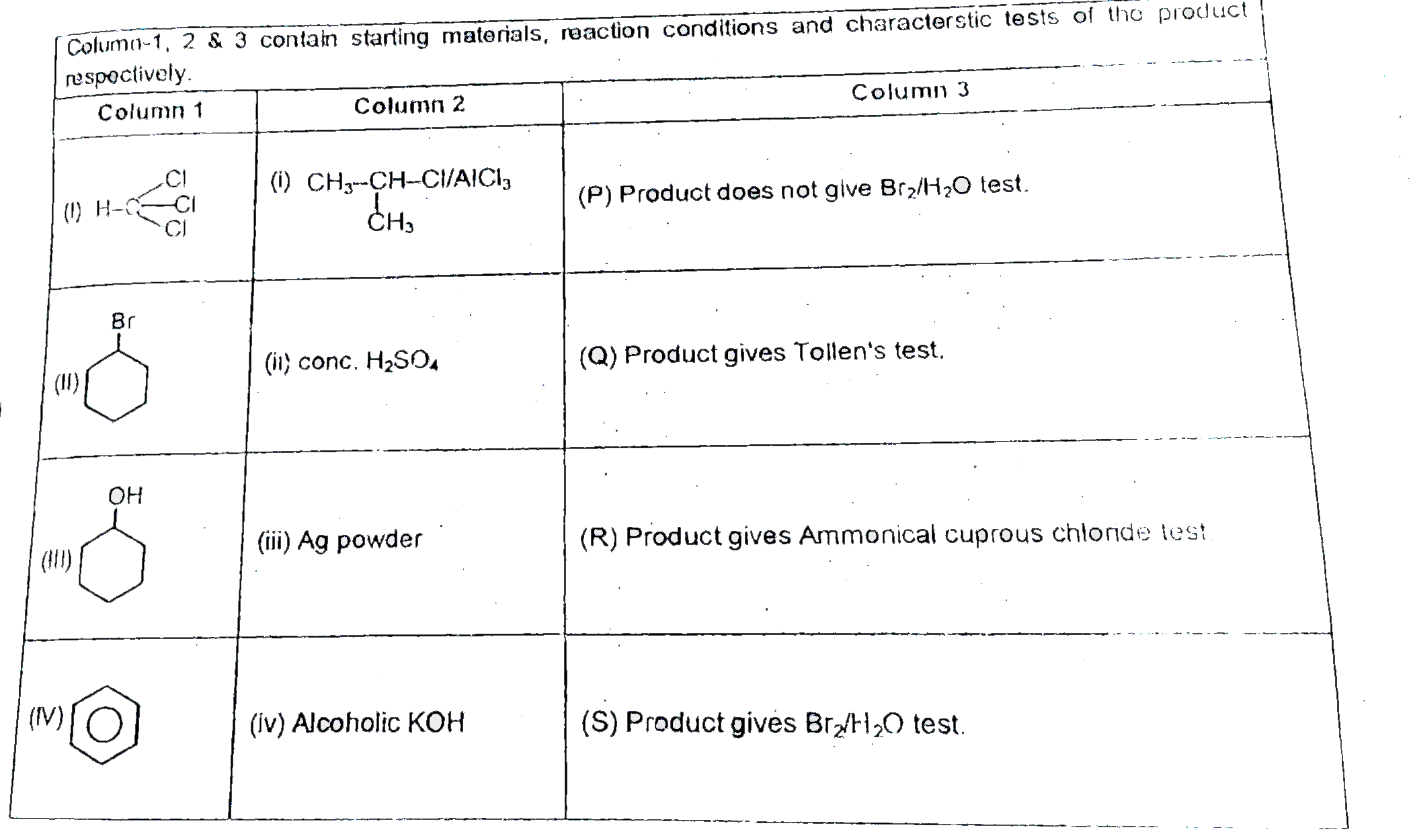
Which of the following set gives the product that give two monochloro structural products after reaction with Cl/hv ?
View SolutionWhich of the following compound has only two isomeric monochloro derivates?
View SolutionNumber of monochloro structural isomers of :

View SolutionHow many monochloro structural products are obtained by
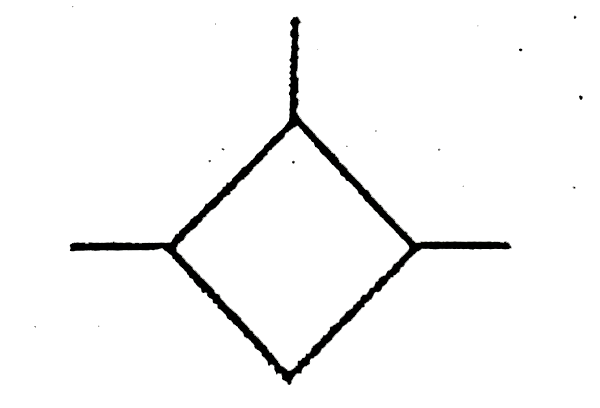
View SolutionWhich of the following compounds will give same major product on acid catalysed hydration ?
View Solution

 Total number of monochloro structure products
Total number of monochloro structure products